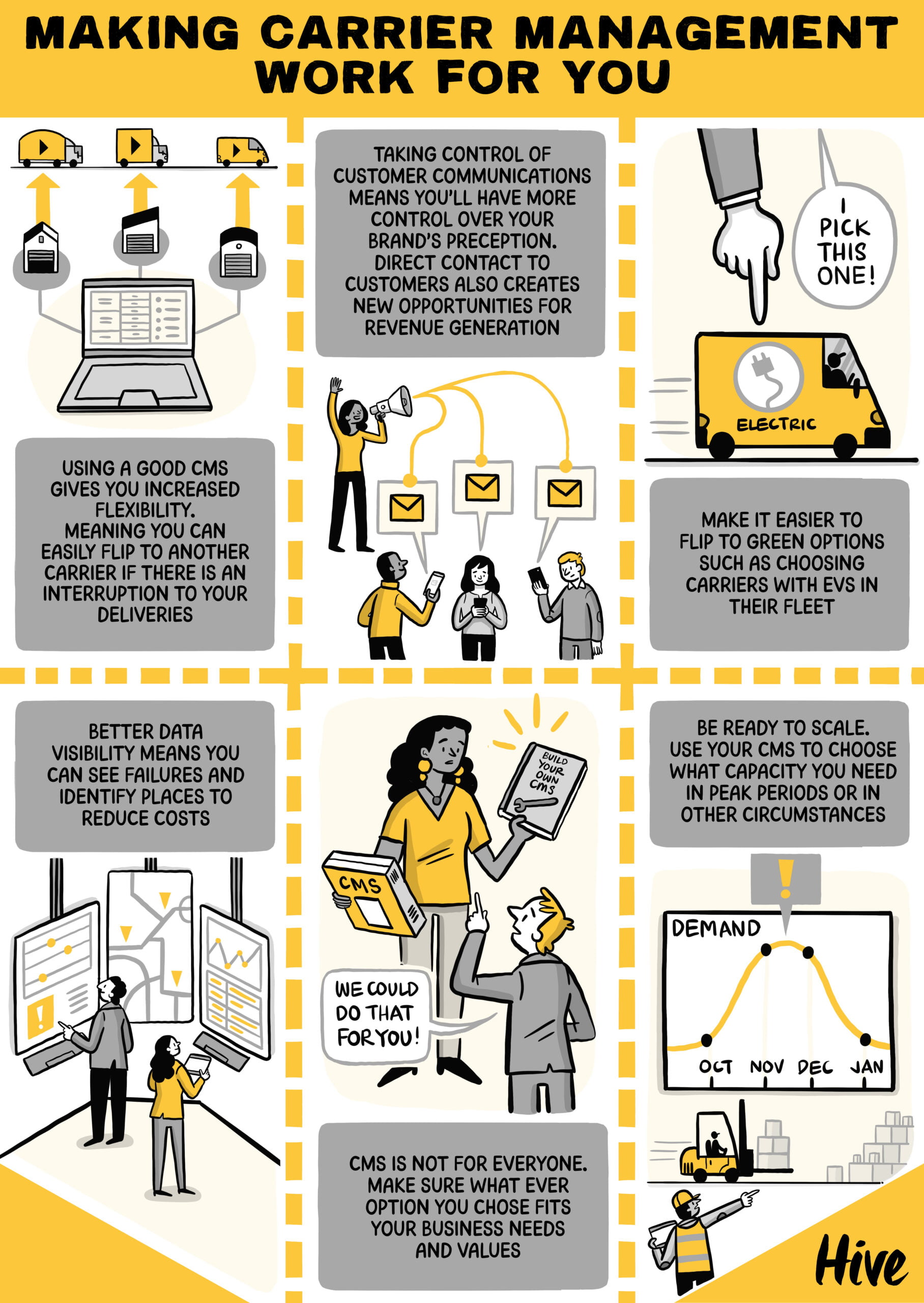With the exponential growth of eCommerce, the importance of efficient carrier management cannot be overstated. Read on as Hive members delve into the necessity, benefits, and challenges associated with Carrier Management Systems (CMS)
In a nutshell…
- Flexibility and agility. A CMS enables rapid adaptation between carriers, vital for reacting to carrier issues or changing customer demands.
- Customer-centricity. The online realm reaps the most benefits from CMS, driving conversion rates, retention, and enhancing customer experience.
- Data verification. While carriers boast high accuracy rates, owning and managing data is crucial for verifying these claims and improving overall operations.
- Operational efficiency. A CMS streamlines operations, reduces manual tasks, and allows for better exception management.
- Environmental sustainability. Balancing speed and green initiatives poses challenges, but some companies are innovatively integrating eco-friendly practices into their delivery networks.
A closer look…
Carrier management in action
For many Retail Hive members, the transformative impact of a CMS on customer communication and service has been huge. A CMS gives them the agility to switch between carriers seamlessly, ensuring uninterrupted service even in the face of carrier issues or changing customer preferences.
Members believe that a CMS has empowered them to leverage data-driven insights for strategic decision-making in a whole new way. By owning and managing their data, they can verify carrier claims, optimise routes, and enhance overall operational efficiency.

This data-centric approach not only improves service reliability, but also enables targeted marketing efforts, driving conversion rates and customer retention. However, for some of our members, the journey towards embracing a CMS has been fraught with challenges. Convincing stakeholders of a CMS’ significance for enhancing customer service requires a comprehensive understanding of its benefits and potential ROI. The perennial problem of integration also rears its head, with existing systems and processes posing technical hurdles that must be addressed to unlock the full potential of a CMS.
Despite these challenges, members generally believe that a CMS is not just a logistics tool, but a strategic asset for building resilient supply chains and delivering exceptional customer experiences. As logistics continue to evolve in response to changing consumer expectations and market dynamics, CMS will play an increasingly central role in shaping the future of eCommerce and omnichannel retail.
Still to do…
Supply chains still face a pressing need for improved parcel management and claims processes, particularly concerning lost parcels. Streamlining these processes is essential to ensure timely resolution and maintain customer satisfaction. By implementing more efficient systems for tracking and managing lost parcels, retailers can minimise disruptions and enhance the overall delivery experience for their customers.
Ethical considerations are increasingly important in supply chain practices, with members being particularly concerned about the treatment of delivery drivers and environmental sustainability. Retailers must examine the ethical implications of their operations and take proactive steps to mitigate the negative impacts of a race to the bottom on price.
While reducing cost is important, the fair treatment of workers throughout the supply chain is a key part of many retailers’ sustainability goals and an important factor in building trust with consumers. Addressing ethical concerns is essential for fostering long-term sustainability and maintaining a positive reputation in the market, but finding a cost-effective way to do it is still a problem.




